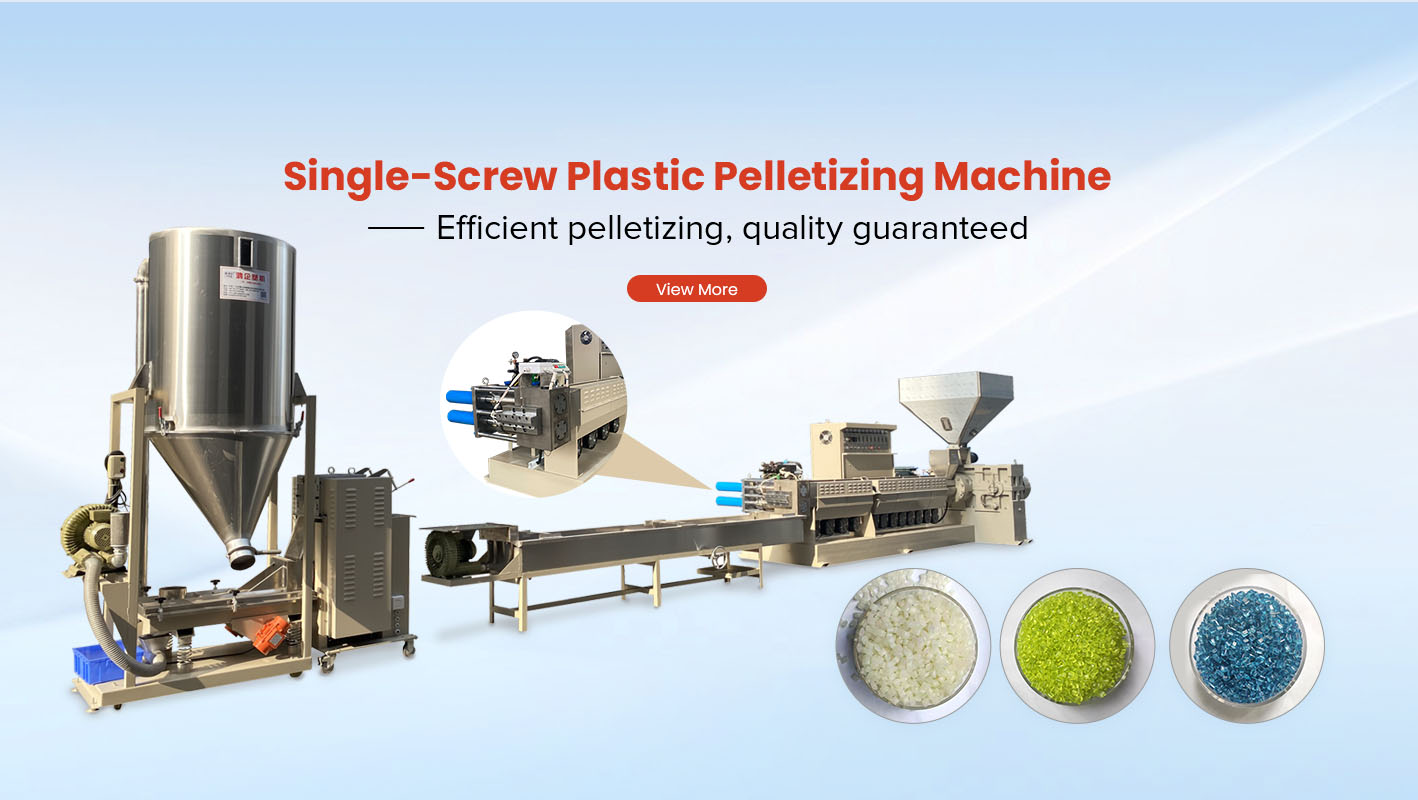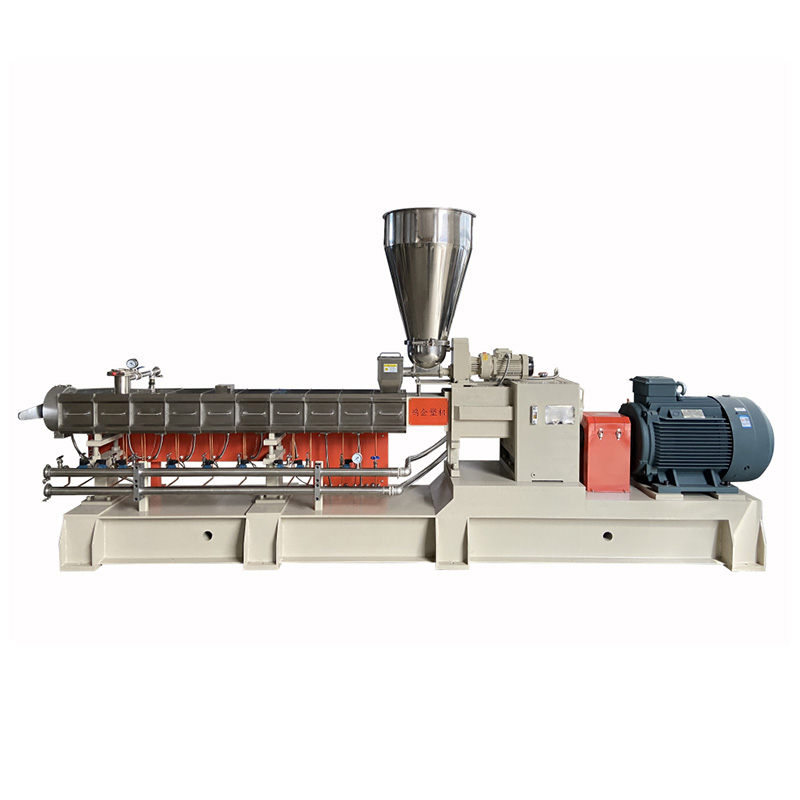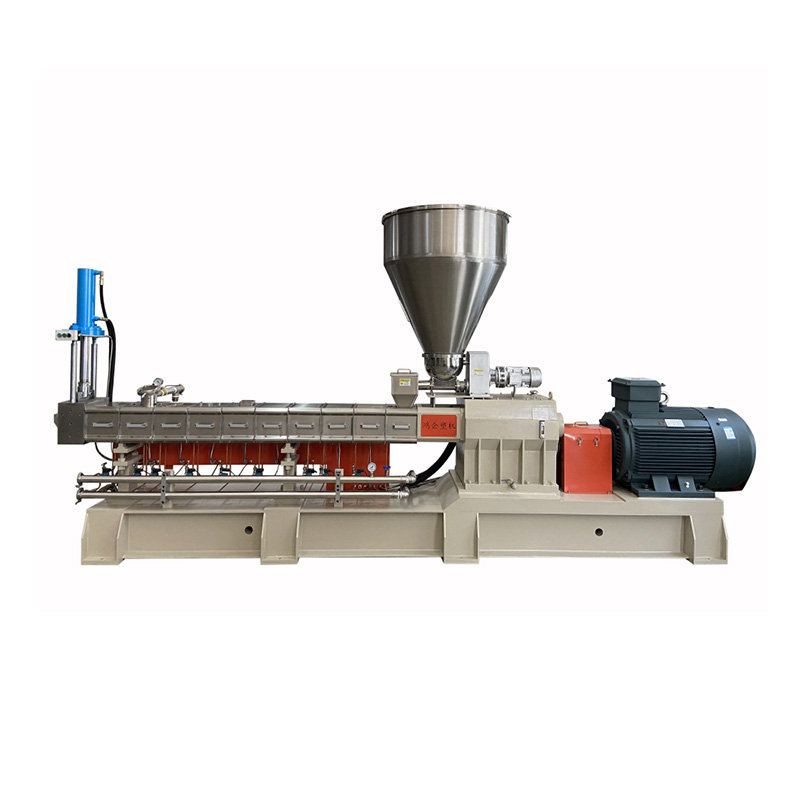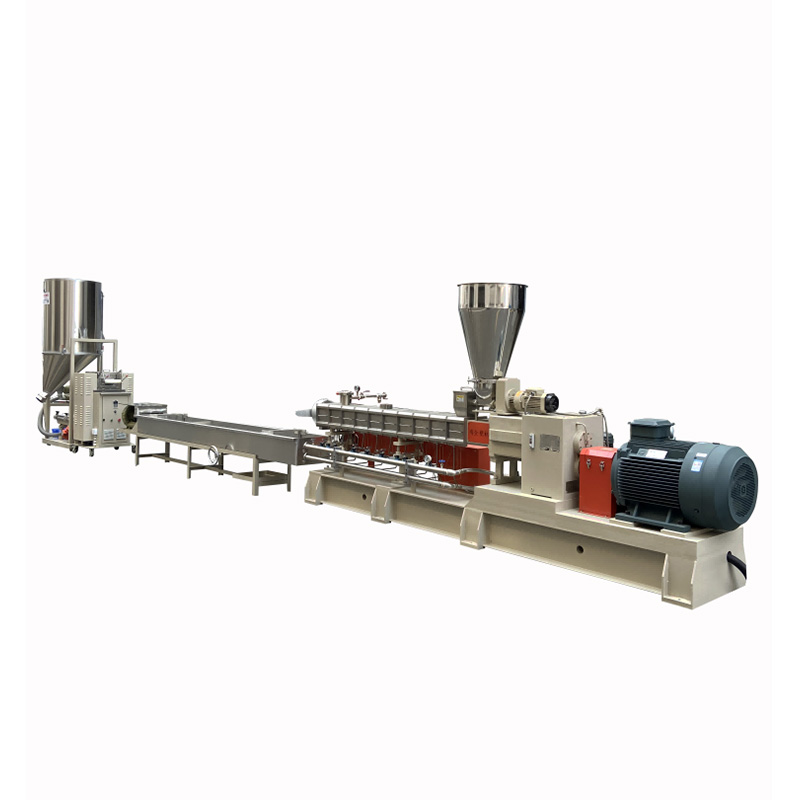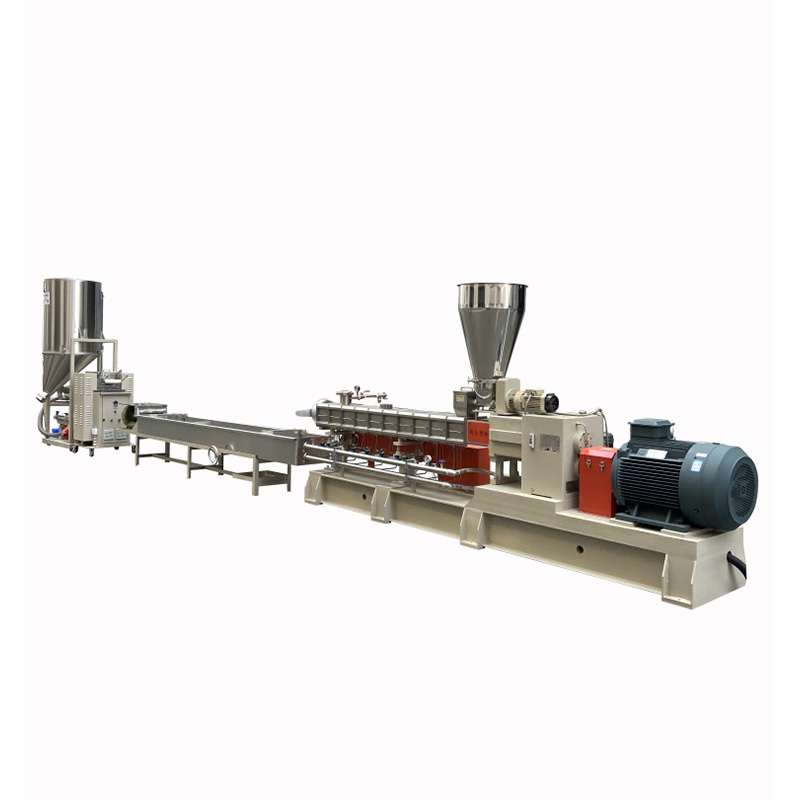Industrial Twin Screw Extruder Machine
Vacuum System: 4KW Vacuum Unit For Effective Degassing;
Cutting System: Equipped With SKD-11/tungsten Steel Rotary Blades, With 28 Blades Driven By A 7.5KW Motor With Variable Frequency Control
- Product Information
The Twin Screw Extruder Machine is a core device for polymer material processing, widely used in compounding, extrusion, and pelletizing processes in the plastics, rubber, and chemical industries. This device utilizes two intermeshing or non-intermeshing screws rotating within a heated barrel to convey, compress, melt, mix, and extrude materials. Its operational stability and process flexibility, particularly when processing high-viscosity, heavily filled, or heat-sensitive materials, demonstrate excellent adaptability and controllability, providing users with a superior user experience.
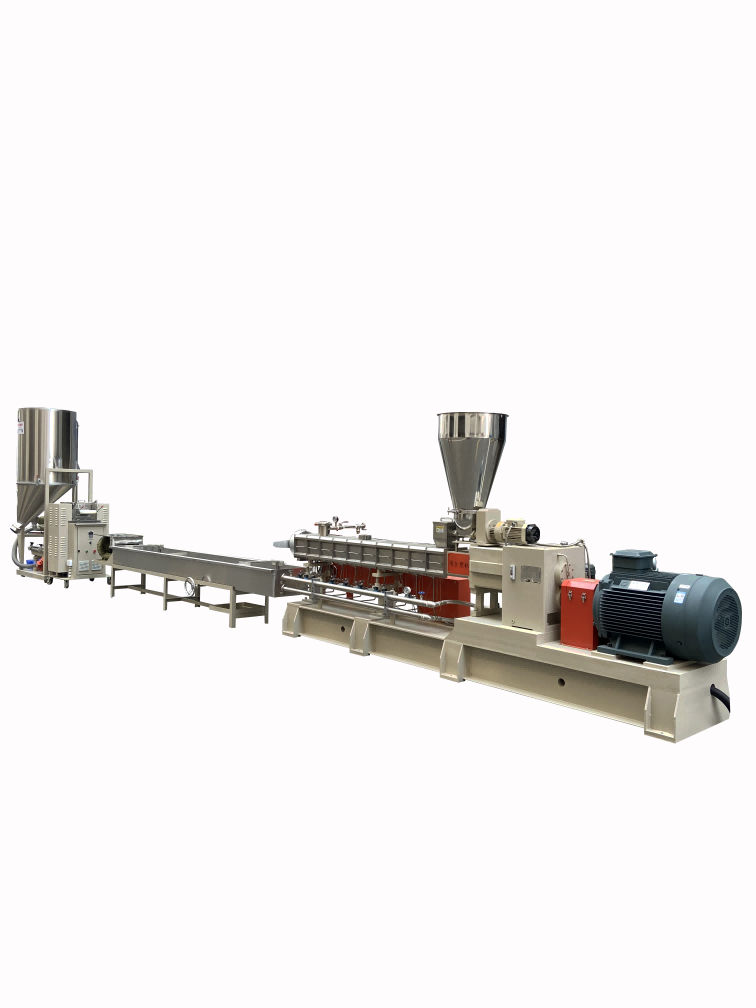
Twin Screw Extruder Machine Infomation:
| Model: | HQ-75B |
| Warranty: | 1 Year |
| Port: | Nansha, China |
| Screw: | Twin Screw |
| Terms of Payment: | T/T |
| Average Lead Time: | 1-2 months |
| Screen Changer: | Hydraulic pressure |
| International Commercial Terms (Incoterms): | FOB, CFR, CIF, EXW |
Twin Screw Extruder Machine Parameters:
Model | Screw Diameter (mm) | Groove Deep(mm) | L/D Ratio | Max RPM( r/min) | Output (kg/hr) |
HQ-20 | 22 | 3.85 | 32/40 | 500 | 1.5-10 |
HQ-36 | 35 | 6 | 35/50 | 500 | 60-150 |
HQ-52B/C | 51 | 9 | 32/52 | 500/600 | 150-250 |
HQ-65B/C | 62 | 11 | 32/52 | 500/600 | 350-500 |
HQ-75B/C | 71 | 12 | 32/52 | 500/600 | 600-1000 |
HQ-95B/C | 92 | 14 | 32/52 | 500/800 | 1000-2000 |
Twin Screw Extruder Machine Detailed Specifications:
| Screw Diameter: | Ø71mm, L/D Ratio: 40 |
| Temperature Control: | 10-Zone System With Omron Controllers |
| Main Motor Power: | 160KW (Global Brand) |
| Vacuum System: | 4KW Vacuum Unit For Effective Degassing |
| Cutting System: | Equipped With SKD-11/tungsten Steel Rotary Blades, With 28 Blades Driven By A 7.5KW Motor With Variable Frequency Control |
| Cooling System: | 304# Stainless Steel Cooling Water Tank With A 2.2KW Suction Motor; Dimensions: 6000450295mm |
Twin Screw Extruder Machine Features:
Efficient Twin-Screw Mixing
The Twin Screw Extruder Machine utilizes a Ø71mm twin-screw structure with a length-to-diameter ratio of 40:1, ensuring that materials undergo sufficient shear, tension, and compression within the barrel, achieving efficient dispersion and homogenization. Adjustable screw speed and multi-stage temperature control adapt to the mixing needs of materials with varying viscosities, increasing mixing efficiency by over 30% compared to single-screw equipment. It is particularly suitable for processing highly filled, high-viscosity composite materials.
High Output Performance
The Twin Screw Extruder Machine has a rated output of 450-700 kg/hr. Driven by a 160kW main motor and utilizing variable frequency control technology, it can adjust output torque and speed in real time based on material properties and process requirements, ensuring stable and efficient discharge capacity during continuous production, meeting the needs of large-scale industrial production.
Precision Temperature Control System
The machine is equipped with 10 independent temperature control zones, utilizing an Omron high-precision controller. Each zone offers a temperature control accuracy of ±1°C, effectively preventing material degradation or carbonization due to temperature fluctuations. It is particularly suitable for processing heat-sensitive engineering plastics and elastomers, improving product consistency and quality stability.
Excellent Mechanical Durability
The screw is constructed of 6542 high-strength steel, and the barrel features a full alloy coating for wear and corrosion resistance, significantly extending its service life. Key structural components undergo heat treatment and precision machining, maintaining excellent rigidity even under long-term high-load operation, reducing failure rates and maintenance frequency.
Energy-Efficient Powertrain
The main motor boasts a power of 160kW and utilizes an internationally renowned motor with a variable frequency control system. This delivers power on demand, eliminating energy waste during no-load or low-load operation. In actual operation, it achieves over 15% energy savings compared to traditional fixed-speed equipment, meeting green manufacturing requirements.
Efficient Pelletizing System
The pelletizing system is equipped with 28 SKD-11/tungsten steel rotary blades, driven by a 7.5kW variable frequency motor. This allows for stepless speed adjustment to accommodate pelletizing of varying particle sizes. This ensures high pelletizing uniformity and consistent particle shape, reducing subsequent screening and recycle requirements.
Twin Screw Extruder Machine Applications:
Plastic Recycling and Granulation
The Twin Screw Extruder Machine efficiently processes various types of waste plastics, such as PE, PP, and ABS, converting them into reusable, uniform pellets through melting, filtering, extrusion, and pelletizing. Its production capacity can reach over 500 kg/hr, significantly increasing the added value and reprocessability of recycled materials.
Engineering Plastic Modification
Leveraging the high shear and mixing capabilities of the twin-screw extruder, the Twin Screw Extruder Machine can evenly disperse reinforcing materials such as glass fiber, carbon fiber, and mineral fillers into the matrix resin, improving the material's mechanical properties, heat resistance, or dimensional stability. It is suitable for the modification of engineering plastics such as PA, PC, and PBT.
Masterbatch Preparation
The Twin Screw Extruder Machine can achieve fine dispersion of high-concentration pigments or additives into carrier resins, achieving industry-leading color consistency and dispersion. With a stable batch production capacity of 450–700 kg/hr, it is widely used in the production of plastic coloring and functional masterbatches.
Thermoplastic Elastomer Processing
The Twin Screw Extruder Machine is suitable for blending, plasticizing, and pelletizing elastomer materials such as TPE and TPU. By precisely controlling melt temperature and shear strength, it ensures consistent elasticity and wear resistance, meeting the demands of high-end elastomer products in the automotive, footwear, and electronics industries.
Highly Filled Composite Material Production
The Twin Screw Extruder Machine can uniformly mix high-proportion fillers such as calcium carbonate, talc, and titanium dioxide with the resin matrix, achieving a filling ratio of over 60% without delamination or agglomeration. This significantly reduces raw material costs and improves specific material properties, such as flame retardancy and weight gain.
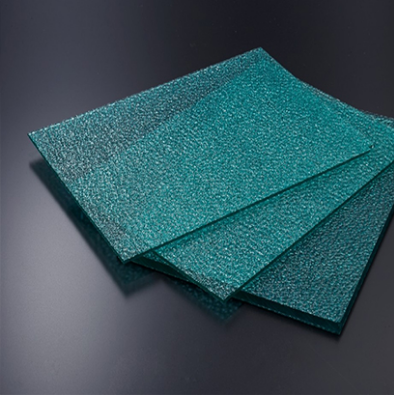
Twin Screw Extruder Machine Types:
Co-Rotating Twin Screw Extruder:
Both screws rotate in the same direction, offering efficient mixing and homogenization. Ideal for compounding, masterbatch production, and processing thermoplastic elastomers.
Counter-Rotating Twin Screw Extruder:
Screws rotate in opposite directions, providing gentle mixing, suitable for processing materials like PVC.
Intermeshing Twin Screw Extruder:
Screws engage with each other, enhancing mixing and shearing, perfect for high-viscosity materials and complex formulations.
Non-Intermeshing Twin Screw Extruder:
Screws operate independently, providing lower shear, ideal for applications requiring minimal material stress.
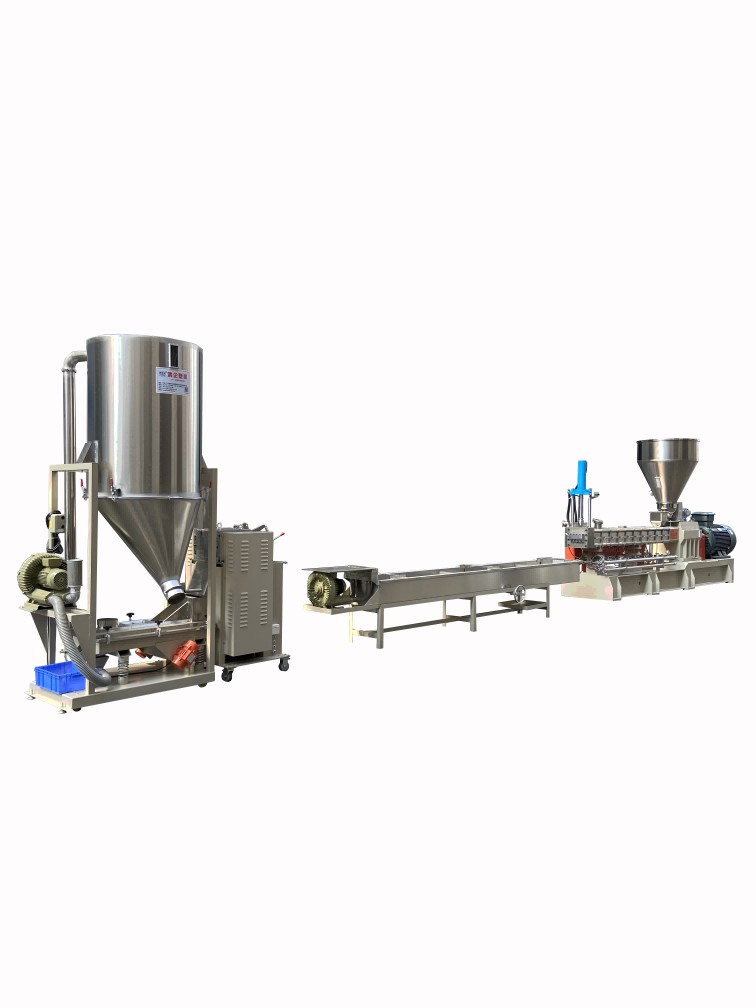
Twin Screw Extruder Machine Maintenance Tips:
Regularly clean the barrel and screw.
The barrel and screw should be thoroughly cleaned every 500 hours of operation. Use a special cleaning compound or chemical solvent to remove residual melt and prevent carbonized deposits that affect mixing and product quality. Also, inspect the screw surface for wear or corrosion.
Lubrication System Maintenance
Check the lubricant condition of the gearbox and bearings every three months. Refill or replace lubricant that meets specifications to ensure smooth and low-noise operation of the transmission system and extend the life of the gears and bearings.
Electrical System Inspection
Inspect the temperature control module, inverter, and motor wiring monthly. Use a multimeter to measure voltage and current stability. Clean dust from the electrical cabinet to ensure proper heat dissipation and prevent production stoppages due to electrical failures.
Vacuum System Maintenance
Replace the vacuum pump's vacuum oil every 300 hours of operation and clean the exhaust filter to maintain unobstructed exhaust and stable vacuum levels, ensuring effective removal of volatiles and bubbles during processing.
Pelletizing System Inspection and Blade Replacement
Check the pelletizer blade for wear every 200 hours of operation. If the blade is blunt or chipped, replace or sharpen it promptly to maintain uniform pellet size. Also, adjust the contact pressure between the blade holder and the die surface to prevent leakage or poor pelletizing.


